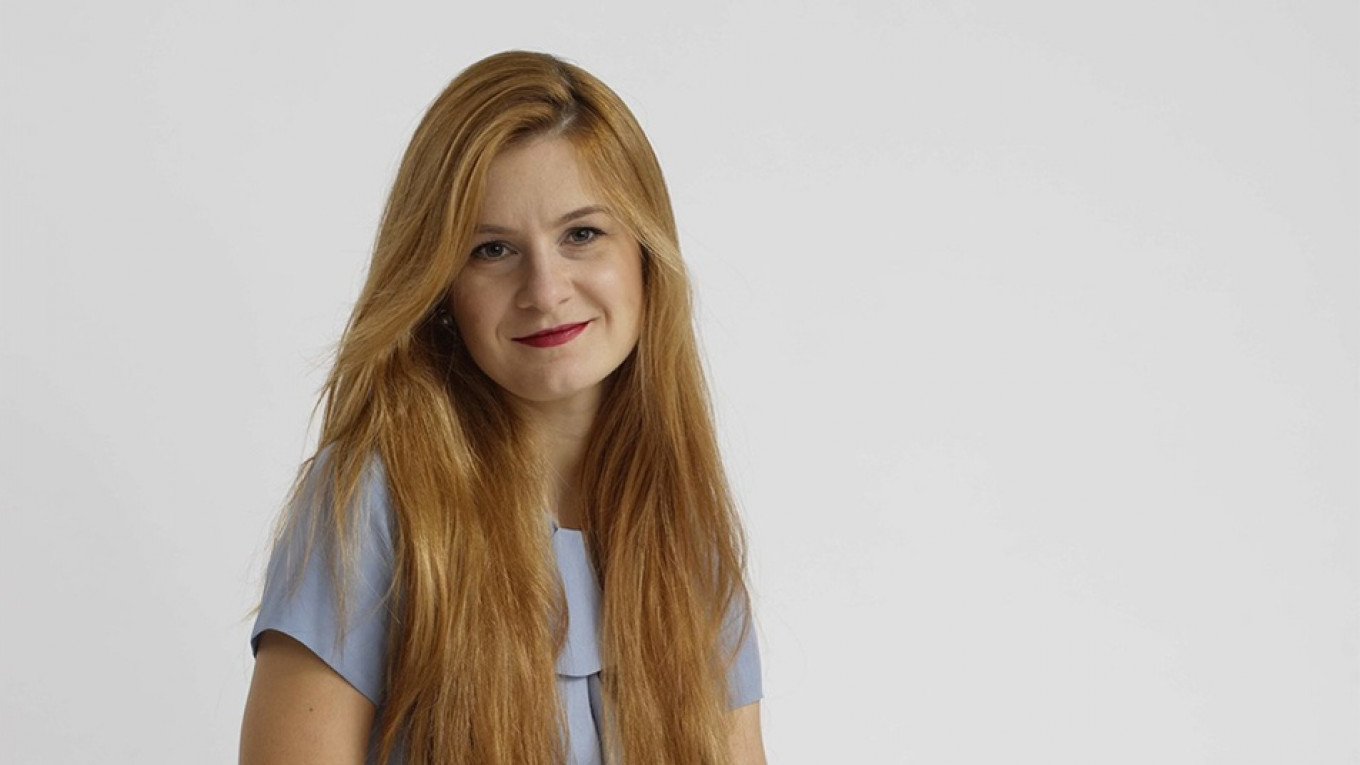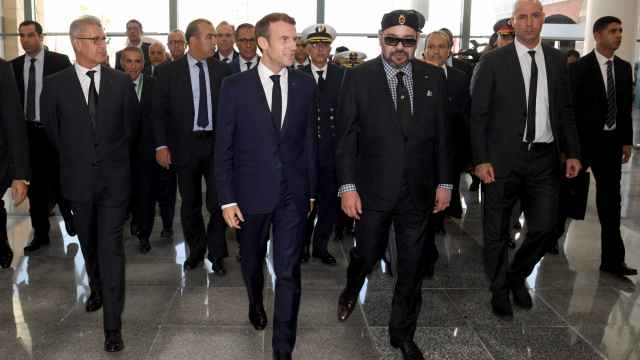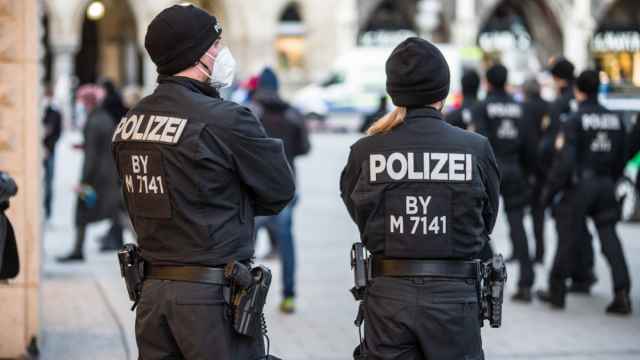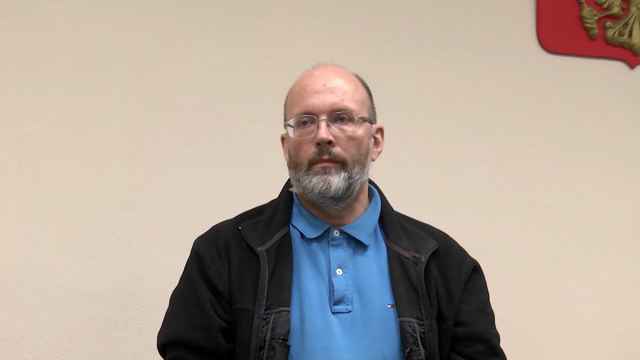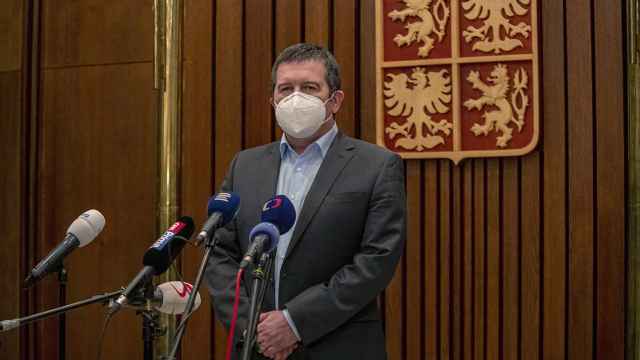A Russian woman pleaded guilty in a U.S. court on Thursday to a single conspiracy charge in a deal with prosecutors and admitted to working with a top Russian official to infiltrate a powerful gun rights group and make inroads with American conservative activists and the Republican Party as an agent for Moscow.
Maria Butina, a former graduate student at American University in Washington who publicly advocated for gun rights, entered the plea to a charge of conspiracy to act as a foreign agent at a hearing in Washington. She became the first Russian to be convicted of working to influence U.S. policy during the 2016 presidential race and agreed to cooperate with prosecutors.
Butina admitted to conspiring with a Russian official and two Americans from 2015 until her July arrest to infiltrate the National Rifle Association, a group closely aligned with U.S. conservatives and Republican politicians including President Donald Trump, and create unofficial lines of communication to try to make Washington's policy toward Moscow more friendly.
Alexander Torshin, who was a deputy governor of Russia's Central Bank, has been identified by Butina's lawyers as the Russian official. Torshin was hit with U.S. Treasury Department sanctions in April. Paul Erickson, a conservative U.S. political activist with deep Republican ties who was romantically linked to Butina, was one of the two Americans to whom prosecutors referred.
Butina, a 30-year-old native of Siberia, agreed to cooperate "fully, truthfully, completely and forthrightly" with any and all U.S. law enforcement agencies and could provide interviews, sworn statements and lie-detector tests and participate in undercover law enforcement stings.
She was jailed after being charged in July and initially pleaded not guilty. Other Russian individuals and entities have been charged in a separate investigation by Special Counsel Robert Mueller regarding Moscow's role in the 2016 election.
Clad in a green jumpsuit with her red hair pulled back in a long braid, Butina replied "absolutely" when asked by U.S. District Judge Tanya Chutkan if her mind was clear as she prepared to plead guilty. Prosecutors dropped one other charge as part of the plea deal.
The actions Butina acknowledged taking occurred during the same time period that U.S. intelligence agencies have concluded Russia engaged in a campaign of propaganda and hacking to sow discord in the United States during the 2016 race and boost Republican candidate Trump's chances against Democratic rival Hillary Clinton.
In a statement of offense read aloud in court, a prosecutor said Butina drafted a March 2015 "Diplomacy Project" calling for establishing unofficial back channels of communication with high-ranking American politicians to help advance Russia's interests.
Although there are no U.S. sentencing guidelines for her specific crime, her lawyer, Robert Driscoll, estimated that under guidelines for similar crimes Butina could face up to six months in prison. Butina faces possible deportation to Russia after finishing her sentence.
Because of Butina's ongoing cooperation, the judge did not set a sentencing date but scheduled a status hearing for Feb. 12.
Leonid Slutsky, head of the lower house of the Russian parliament's foreign affairs committee, reacted to Butina's case by calling it a "modern political inquisition," in comments quoted by the RIA news agency.
Erickson's description appears to match "Person 1" mentioned in the prosecution's statement of offense. Person 1 helped advise Butina on which American politicians she should target for meetings, and her plan was carried out on behalf of the Russian official, the statement said.
'Circumstances were favorable'
"Butina opined that the circumstances were favorable for building relations with a certain U.S. political party," the statement added, in an apparent reference to the Republican Party. "Butina predicted that the candidate nominated by Political Party #1 would likely win the upcoming U.S. presidential election," as Trump did.
The "Diplomacy Project" document was crafted by Butina with help from Person 1, prosecutors said. To carry out the plan, Butina requested $125,000 from a Russian billionaire to attend conferences and set up "separate meetings with interested parties" such as other Russian businessmen or people with the Russian Ministry of Foreign Affairs, they added.
Erickson is a well-known figure in Republican and conservative circles and was a senior official in Pat Buchanan's 1992 Republican presidential campaign. Erickson's lawyer William Hurd said in an email, "Paul Erickson is a good American. He has done nothing to harm our country and never would."
In April 2015, prosecutors said, Butina traveled to the United States to attend a gun rights event whose description appears to match the NRA's annual meeting. At that event, she was "introduced to influential members of Political Party #1," they added.
The prosecutors said Butina invited "powerful members" of the NRA for a visit to Moscow where they met with high-level Russian officials. Apparent photos of the NRA Moscow trip are posted on her social media accounts.
After the visit, according to court records, she sent a Russian official a message apparently referencing the NRA saying, "We should let them express their gratitude now, we will put pressure on them quietly later."
Butina also hosted "friendship dinners" in the hope of establishing ties with people who "would have the ear of the next U.S. presidential administration," prosecutors said.
After the 2016 election, she proposed creating a dialogue with Trump's advisors, but the Russian official told her he did not think the foreign affairs ministry would "go for it," prosecutors said.
Butina even asked then-candidate Trump a question at a gathering of U.S. conservatives in 2015 about relations with Russia and economic sanctions imposed by his predecessor, Barack Obama. Trump responded that as president he would "get along very nicely" with President Vladimir Putin and "I don't think you'd need the sanctions."
Mueller is investigating whether Trump's campaign conspired with Moscow to help him win the 2016 election. Trump has denied collusion with Moscow. Russia has denied interfering in American politics.
A Message from The Moscow Times:
Dear readers,
We are facing unprecedented challenges. Russia's Prosecutor General's Office has designated The Moscow Times as an "undesirable" organization, criminalizing our work and putting our staff at risk of prosecution. This follows our earlier unjust labeling as a "foreign agent."
These actions are direct attempts to silence independent journalism in Russia. The authorities claim our work "discredits the decisions of the Russian leadership." We see things differently: we strive to provide accurate, unbiased reporting on Russia.
We, the journalists of The Moscow Times, refuse to be silenced. But to continue our work, we need your help.
Your support, no matter how small, makes a world of difference. If you can, please support us monthly starting from just $2. It's quick to set up, and every contribution makes a significant impact.
By supporting The Moscow Times, you're defending open, independent journalism in the face of repression. Thank you for standing with us.
Remind me later.



